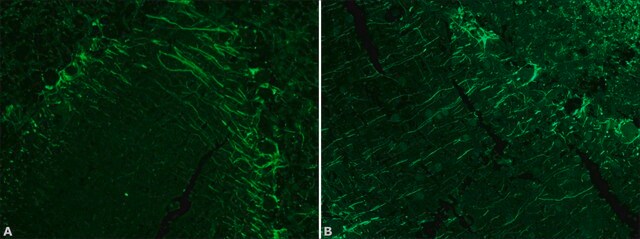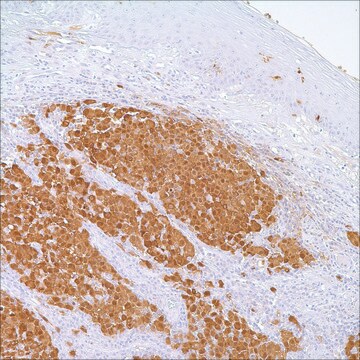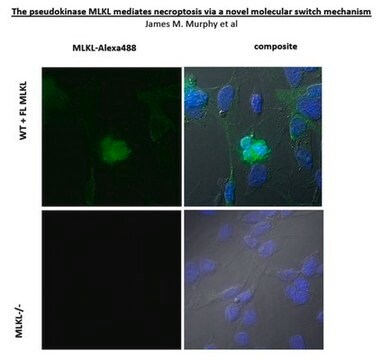SAB4200671
Anti-S-100 (β-Subunit) antibody, Mouse monoclonal
clone SH-B1, purified from hybridoma cell culture
Synonyme(s) :
Monoclonal Anti-S-100 (β-Subunit) antibody produced in mouse, NEF, S100, S100-B, S100beta
About This Item
Produits recommandés
Source biologique
mouse
Niveau de qualité
Forme d'anticorps
purified from hybridoma cell culture
Type de produit anticorps
primary antibodies
Clone
SH-B1, monoclonal
Espèces réactives
cat, rabbit, porcine, bovine, rat, human
Concentration
~1 mg/mL
Technique(s)
immunohistochemistry: 1.5-3 μg/mL using immunoperoxidase labeling of pronase digested, formalin-fixed, paraffin-embedded sections of rabbit tongue.
Isotype
IgG1
Conditions d'expédition
dry ice
Température de stockage
−20°C
Modification post-traductionnelle de la cible
unmodified
Informations sur le gène
human ... S100B(6285)
Description générale
Immunogène
Application
- immunohistochemistry
- enzyme linked immunosorbent assay (ELISA) (Ca2+ ion independent)
- immunocytochemistry
- immunoblotting
- dot blot
- immunohistochemistry.
Actions biochimiques/physiologiques
Clause de non-responsabilité
Vous ne trouvez pas le bon produit ?
Essayez notre Outil de sélection de produits.
Code de la classe de stockage
10 - Combustible liquids
Point d'éclair (°F)
Not applicable
Point d'éclair (°C)
Not applicable
Faites votre choix parmi les versions les plus récentes :
Certificats d'analyse (COA)
Vous ne trouvez pas la bonne version ?
Si vous avez besoin d'une version particulière, vous pouvez rechercher un certificat spécifique par le numéro de lot.
Déjà en possession de ce produit ?
Retrouvez la documentation relative aux produits que vous avez récemment achetés dans la Bibliothèque de documents.
Notre équipe de scientifiques dispose d'une expérience dans tous les secteurs de la recherche, notamment en sciences de la vie, science des matériaux, synthèse chimique, chromatographie, analyse et dans de nombreux autres domaines..
Contacter notre Service technique








